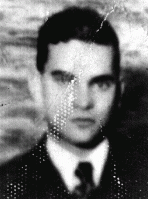You searched for: googleseo开户霸屏包上【TG飞机:@bapingseo】谷歌shopping广告优化【TG电报:@bapingseo】跑分交易程序源碼包【Telegram:@bapingseo】168飞艇官方网站ju11net2备用网址官方网站?e6GBSs/aY1mk7.html
<< Previous | Displaying results 26-50 of 141 for "googleseo开户霸屏包上【TG飞机:@bapingseo】谷歌shopping广告优化【TG电报:@bapingseo】跑分交易程序源碼包【Telegram:@bapingseo】168飞艇官方网站ju11net2备用网址官方网站?e6GBSs/aY1mk7.html" | Next >>
-
Josef Malnik
ID CardRaised in a Jewish family, Josef lived with his wife, Feiga, in Kovno, a cosmopolitan city that was picturesquely situated at the juncture of two rivers and was known as the "Little Paris." Josef was a barber, his wife was a beautician, and together they ran a shop in downtown Kovno. 1933-39: Every day Josef and Feiga walk to their shop which is not far from their house. It's hard work being a barber--Josef is on his feet most of the day, seven days a week including a couple of hours on Sunday. He has…
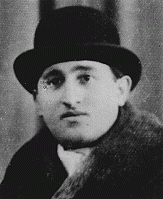
-
Taube Fishman Rosenblat
ID CardTaube, also known as Tola, was born to a Yiddish-speaking Jewish family. Her father worked as a tailor, and a wealthy uncle in Germany helped to support the large family. After finishing public school, Taube trained to be an embroiderer. She fell in love with Itzik Rosenblat, a young man who had first apprenticed with her father in 1925 when Taube was 8 years old. 1933-39: In 1938, after a 13-year courtship much opposed by her family, Taube married Itzik without getting her dowry. The couple lived in an…
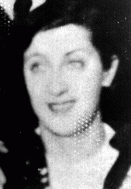
-
Itzik Rosenblat
ID CardItzik, also known as Izak, was one of three sons born to Yiddish-speaking Jewish parents. When Itzik was a young child his family moved to the city of Radom. Itzik left school when he was 11 to apprentice as a women's tailor. After he apprenticed with several tailors in Radom and Warsaw, he went back to school and earned a tailor's license. 1933-39: In 1938 Itzik married Taube Fishman, the daughter of his first employer, after a 13-year courtship much opposed by her family. They lived in Radom, where…
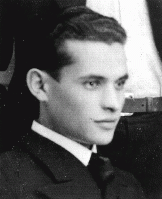
-
Albert Gani
ID CardAlbert and his family lived in Preveza, a town with a Jewish population of 300 that was located on the Ionian seashore. Albert's father had a small textile shop. The Ganis were of Romaniot descent, Jews whose ancestors had lived in Greece and the Balkans for more than a thousand years. 1933-39: After graduating from high school, Albert assisted his father in the family textile shop. A quiet and reserved young man, Albert enjoyed spending time at home with his family. Albert loved taking excursions with…
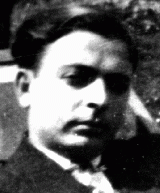
-
Japanese-German phrase book (interior)
ArtifactThe table of contents from a Japanese-German phrase book purchased by German Jewish refugees shortly after their arrival in Japan. The phrase book offers useful expressions in Japanese relating to travel, hotel stays, eating, and shopping in Japan. Japan, 1940-1941. [From the USHMM special exhibition Flight and Rescue.]
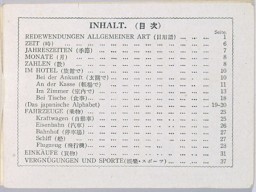
-
Boycott of Jewish-owned businesses
PhotoMembers of the Storm Troopers (SA), with boycott signs, block the entrance to a Jewish-owned shop. One of the signs exhorts: "Germans! Defend yourselves! Don't buy from Jews!" Berlin, Germany, April 1, 1933.
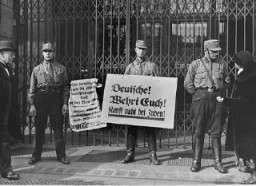
-
Antisemitism in History: Nazi Antisemitism
ArticleAntisemitism (hatred of Jews) predominated in Nazi ideology. The Nazis built upon centuries of anti-Jewish sentiment. Learn about antisemitism in Nazi ideology.
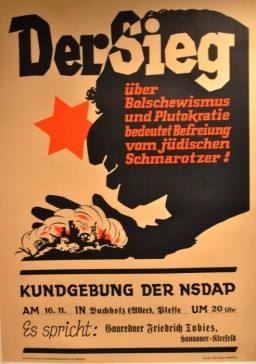
-
Eduard Schulte
ArticleEduard Schulte was a prominent German industrialist and secret anti-Nazi who leaked the first report to the west that the Nazis intended to murder all Jews in Europe.
-
William L. Shirer
ArticleAmerican journalist, foreign correspondent, author, and pioneer radio broadcaster William L. Shirer was one of the key observers and chroniclers of the Nazi regime.
-
Auschwitz Through the Lens of the SS: Frankfurt Trial
ArticleKarl Höcker’s album shows him in close contact to the main perpetrators at Auschwitz-Birkenau. Learn about his 1963 trial and the significance of his album.
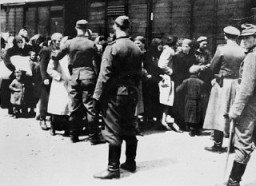
-
Nazi anti-Jewish boycott
FilmSoon after the Nazis assumed power in Germany, they launched a campaign to deprive Jews of their place in society. The effort began with an organized boycott of Jewish-owned businesses. Gangs arrested Jews, painted "Jews forbidden" onto shop windows, chanted antisemitic slogans, and blocked store entrances.
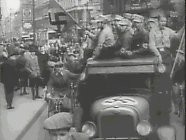
-
Antisemitism
ArticleThe word antisemitism means prejudice against or hatred of Jews. The Holocaust is history’s most extreme example of antisemitism. Learn more.
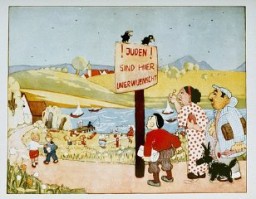
-
Eugenio Gentili Tedeschi
ArticleRead the Jewish Partisan Educational Foundation's short biography of Eugenio Gentili Tedeschi.
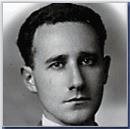
-
Kristallnacht
ArticleOn November 9–10, 1938, the Nazi regime coordinated a wave of antisemitic violence. This became known as Kristallnacht or the "Night of Broken Glass." Learn more
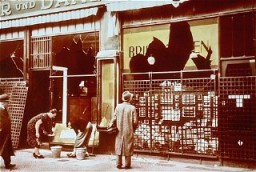
-
World War I and its Aftermath: Key Dates
ArticleExplore a timeline of key events in the history of World War I and its aftermath. Learn about the conflict and its divisive peace.

-
Lutz Haase
ID CardLutz was one of two children born to religious Jewish parents living in Wrzesnia when it was still part of Germany. After World War I, Wrzesnia became part of Polish territory. Preferring to remain as German citizens, Lutz's family moved to Nuremberg. There, his father opened a kosher butcher shop. In 1926 the Haases relocated to Berlin and reestablished their butcher shop there. 1933-39: Like many of Berlin's Jews, Lutz was assigned by the Gestapo to a work detail in 1937. He laid electrical cable for…
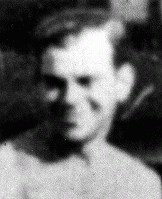
-
Kurt Pauly
ID CardKurt was born to Jewish parents in the city of Aachen, where his mother's family had resided since the 18th century. His father, though trained as a chef, worked as a butcher and also managed several stores for his father-in-law. The Paulys lived over one of those shops in the nearby suburb of Eilendorf. Kurt enjoyed large family gatherings, where he would play with his cousins, Anne and Margot Frank. 1933–39: When the Nazis came to power in 1933, the situation drastically changed for the Paulys.…
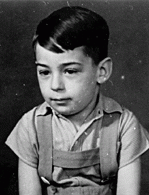
-
Faiga Grynbaum
ID CardFaiga was one of nine children born to religious Jewish parents in Starachowice, a town in east-central Poland. Their small one-story house served as both the family's residence and their tailor shop. Faiga worked in the shop sewing women's clothes; the tailoring was often done in exchange for goods such as firewood or a sack of potatoes. 1933-39: In 1935 Faiga married Haskel Ochervitch. She moved to Kielce, a larger town some 25 miles southwest of Starachowice, where her husband worked selling meat to…
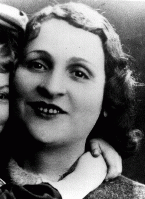
-
Ita Grynbaum
ID CardIta was the second-youngest of nine children born to religious Jewish parents in Starachowice, a town in east-central Poland. Their small one-story house served as both the family's residence and their tailor shop. The tailoring was often done in exchange for goods such as firewood or a sack of potatoes. Ita often helped her mother with chores around the house. 1933-39: Ita's father died at home on a Saturday in June 1939, shortly after returning from synagogue. He had lain down to rest, when suddenly…
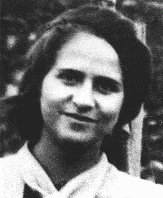
-
Chuna Grynbaum
ID CardChuna was born in a small one-story house that served as both his family's residence and their tailor shop. He was the youngest of nine children born to religious Jewish parents. The family's tailor shop mostly served Starachowice's Catholic Poles. The work was often done in exchange for goods such as firewood or a sack of potatoes. 1933-39: Chuna's father died unexpectedly in June 1939. After returning from synagogue one day, his father lay down to rest. He asked Chuna to close the shade to darken the…
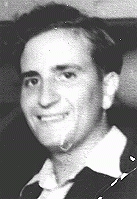
-
Eszter Mendel Braun
ID CardEszter was one of 11 children born to religious Jewish parents in the small town of Hidegkut in eastern Hungary. During World War I her family became refugees and only three of her brothers and sisters survived the war. After the war, she married Jeno Braun, a refugee from the town of Sighet. They settled in the town of Cristuru-Secuiesc in Romania and had six children. 1933-39: Since Eszter could speak many languages, including Hungarian, Yiddish, Romanian, Italian, French, and Hebrew, she felt at home…
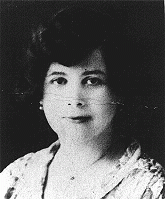
-
Masza Tenenbaum
ID CardThe youngest of three children, Masza was born to Jewish parents living 35 miles east of Warsaw in the small predominantly Jewish town of Kaluszyn. Her father owned a shop where he sold cosmetics and non-prescription medicines. Masza was close friends with a group of Jewish teenagers who went to the same public school and who spent much of their free time and vacations together. 1933-39: Majlich, Sara, and the rest of Masza's group have always liked discussing politics as they strolled down the main…
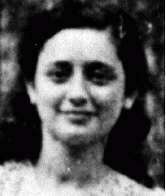
-
Jehuda Gerszonowicz
ID CardThe third of eight children, Jehuda was born in the predominantly Jewish town of Wodzislaw, about 45 miles north of Krakow. Jehuda's father was a mechanic and locksmith, and had trained Jehuda and his brothers in the trade. Jehuda eventually opened his own shop in the nearby town of Miechow. He had eight children--five sons and three daughters--by two marriages. 1933-39: All this summer Jehuda has been glued to the radio, as the number of skirmishes between the German and Polish border guards have…
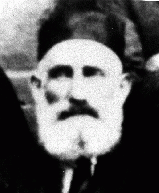
-
Moishe Rafilovich
ID CardMoishe was one of three sons born to Yiddish-speaking Jewish parents in Radom. This industrial city was known for its armaments factories, in which Jews were not allowed to work even though they totaled more than one-fourth of the city's population. When Moishe was young, he left school to apprentice as a women's tailor and eventually became a licensed tailor. He also played soccer for a local team. 1933-39: In 1937 Moishe, by then a master tailor, married another tailor's daughter. The couple had two…
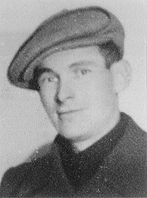
-
Elya Rosenblat
ID CardElya, also known as Eli, was the eldest of three sons born to Yiddish-speaking Jewish parents. When Elya was a child his family moved to the industrial city of Radom, located about 60 miles south of Warsaw. After completing school in Radom, Elya apprenticed to become a women's tailor. Eventually, he became licensed as a master tailor. 1933-39: Elya married in 1936 and had a daughter one year later. He and his wife lived on Zeromskiego Street across from Elya's younger brother, Itzik, who was also a…
